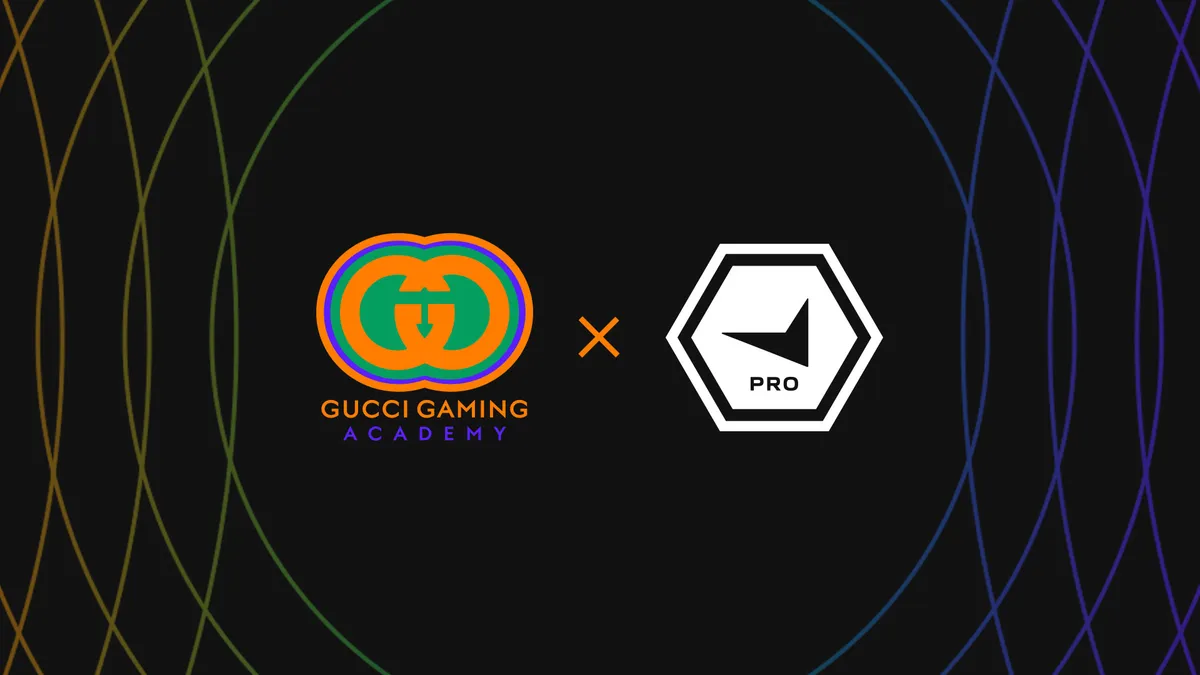Dive Brief:
- Gucci and esports organization Faceit have partnered on an initiative that seeks to foster the next generation of gaming talent, including by providing mental health services for up-and-comers, per a news release shared with Marketing Dive.
- The Gucci Gaming Academy works with groups like the World Health Organization and Mindwork to help gamers manage issues including performance under stress, living in the spotlight and teamwork. Participants will also receive access to the luxury marketer’s Gucci Education platform and training sessions to learn how to navigate player contracts and develop their personal brand.
- The program, which selects its members based on in-game performance and personal interviews to assess values and soft skills, is offered for one year or until the participant is signed to a professional team. Gucci is kicking off the first class with four players of Counter-Strike: Global Offensive (CS:GO) who already compete in the Faceit Pro League, but it plans to expand that number along with its stake as a luxury brand in gaming.
Dive Insight:
Gucci is angling for an early-mover advantage in the booming world of esports through the new gaming academy. The company claims the concept, which aims to grow aspiring amateurs into pros without sacrificing their mental health, is a first in the luxury category. Faceit is the largest competitive gaming platform in the world with more than 26 million players.
For Gucci, the program provides a direct way to build relationships with gaming talent that may eventually hit it big. The news speaks to how gaming is commanding a more diverse audience, including the types of consumers who can shell out for higher-priced goods. Gucci has tried its hand at winning over gamers before. The fashion label previously teamed with esports apparel brand 100 Thieves on a highly limited capsule collection, as well as Microsoft on a pricey iteration of the Xbox gaming console.
Gucci is attempting to port over some of its usual stylistic flair to the gaming academy. A three-minute promotional video takes obvious inspiration from Wes Anderson’s “The Grand Budapest Hotel.”
Esports players and video game streamers are an increasingly influential segment of the creator economy, and valuable Gen Z consumers are among their biggest audiences. Three-quarters of Gen Z gamers watch gaming-related content, according to industry researcher Newzoo.
Participants in the Gucci Gaming Academy might not be known names yet, but the brand is roping in more established ones to prop up the program. Ambassadors at launch include commentator James Bardolph, Counter-Strike veteran Christopher “GeT_RiGhT” Alesund and Stephanie “missharvey” Harvey, a trailblazer for women in esports who is also known for her Counter-Strike play. Along with promoting the academy, these partners will act as mentors to members, providing monthly one-on-one sessions.
Gucci and Faceit are trying to differentiate their platform by emphasizing psychological assistance for managing mental and physical stressors. Online gaming has always carried an aspect of toxicity, and those negative traits can be amplified with the additional pressures of going pro.
Some esports leagues and teams have faced criticism for not providing support to their players. Last week, a member of the esports organization Team SMG, Michael "ninjaboogie" Ross, claimed he was cut over concerns that the death of his mother could impact performance. The incident stirred discussions on social media and platforms like Reddit.















